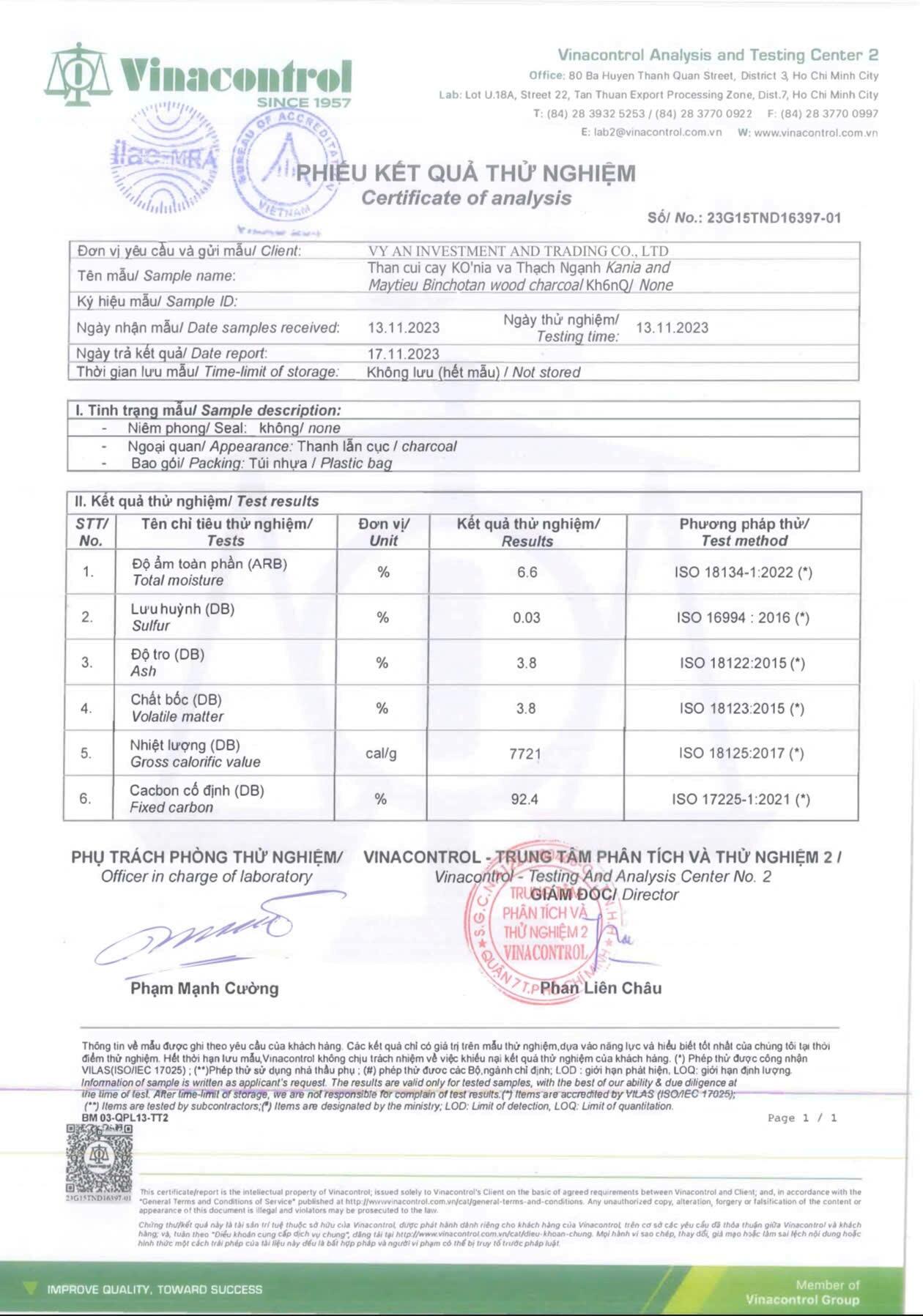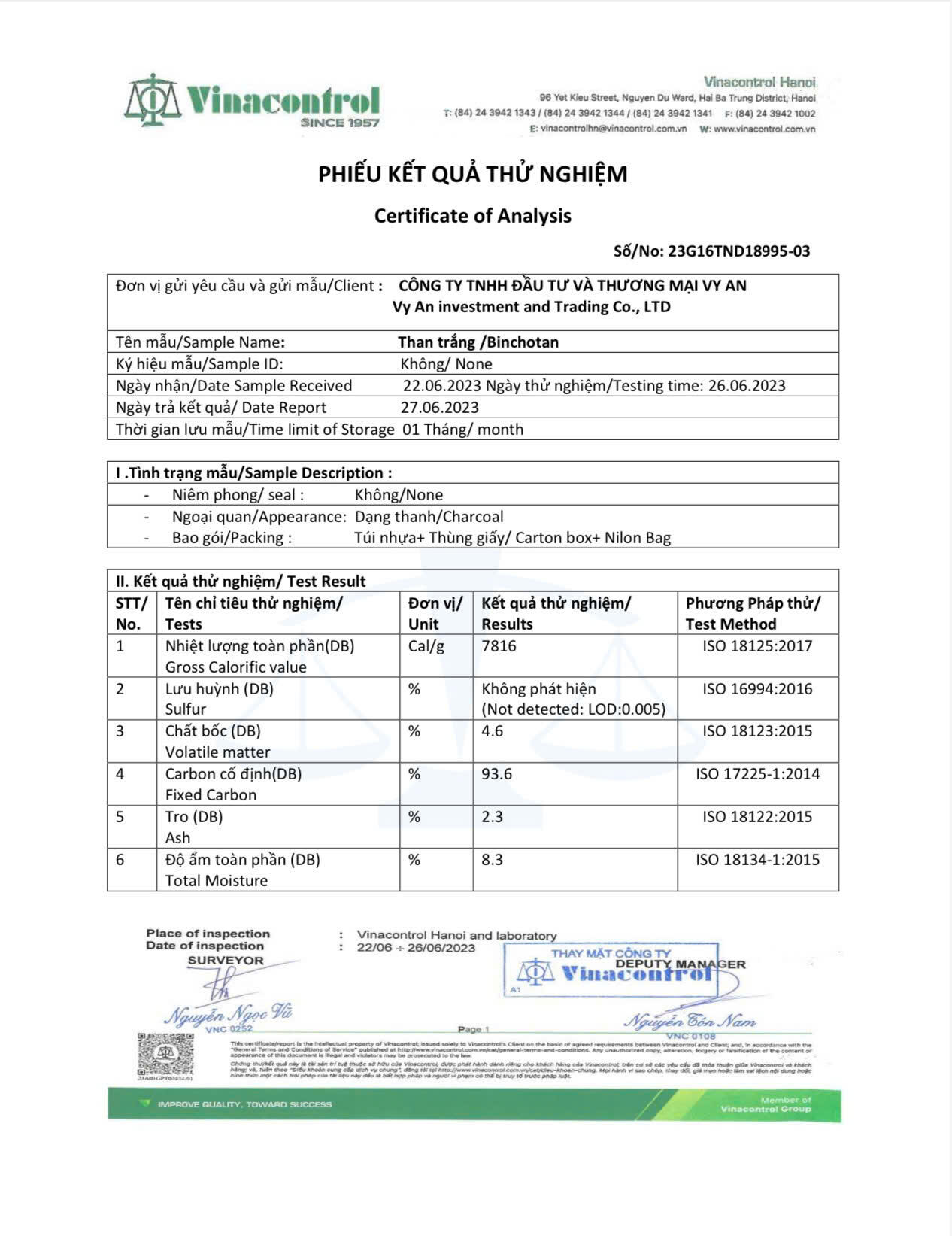-
Hotline : +84 981 282 028
- vyan.company@gmail.com
Binchotan
Price:
ContactPeople are viewing this right now
Binchotan:
Raw Material: White charcoal is a premium charcoal produced from lychee and jackfruit wood, subjected to a carbonization process at temperatures between 800 – 1000 degrees Celsius. Unlike black charcoal, white charcoal is distinguished by its production temperature, carbon content, calorific value, and combustion duration. One ton of raw materials yields approximately 120 kilograms of white charcoal.
Applications: White charcoal is widely used in high-end restaurants in South Korea and Japan, as well as for heating purposes and in metallurgical technology.
Product Characteristics:
Applications: Ideal for BBQ.
Combustion: Burns intensely with bursts (producing sparks).
Ignition: Quick to ignite.
Odorless and Smoke-Free: Produces minimal white-brown ash.


1. Definition & Origin
White charcoal (Binchotan) is a premium charcoal produced from hardwoods such as eucalyptus, jackfruit, lychee, or coffee. It undergoes a carbonization process at temperatures between 800–1100°C in an oxygen-deficient environment, followed by rapid cooling using a mixture of clay, sand, and ash.
Originating from Japan, it has been used since the Edo period for grilling food and water purification.
2. Technical Characteristics
Calorific Value: 8,000–8,500 kcal/kg, which is 1.2–1.5 times higher than conventional charcoal.
Carbon Content: >90%
Ash Content: <3%
Moisture: <3%
Burning Duration: 3–6 hours, depending on size and usage conditions.
Standard Size: Diameter of 8–12 cm and a length of 45–50 cm.
3. Applications
Premium BBQ Grilling: Odorless and smokeless, retaining the food's natural flavors; ideal for Japanese and Korean restaurants.
Water Filtration & Deodorization: Absorbs impurities and heavy metals thanks to its porous structure with a surface area of up to 2,500 m²/g.
Industrial Uses: Employed in metallurgy, battery production, cosmetics, and medical devices.
Heating & Air Purification: Suitable for enclosed spaces, including air-conditioned environments.
4. Production Process
Material Selection: Fresh, hard wood (eucalyptus, lychee) is cut into lengths of 50–60 cm.
Carbonization: Burned at 1,000–1,100°C for 5–10 days, then the kiln is sealed to minimize oxygen exposure.
Cooling: Coated with a mixture of clay and ash to create the characteristic white layer.
Sorting & Packaging: Packaged in cardboard boxes of 5–15 kg, ensuring moisture-free conditions.
5. Technical Specifications
Diameter: 3 - 10 cm
Length of Charcoal: 45 - 50 cm
Burning Time: 5 - 6 hours
Moisture Content: 8.3 – 9%
Ash Content: 2.3 – 3%
Fixed Carbon Content: 92 – 93%
Calorific Value (kcal/kg): 7816
Volatile Matter: 4.6 – 5.5%